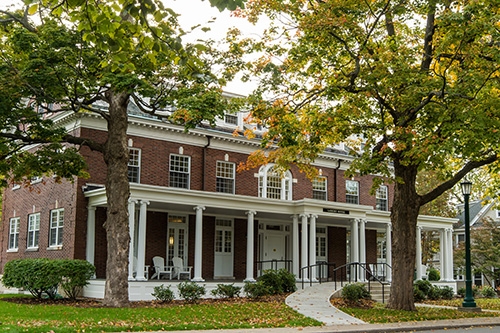Faculty organizer: Karen Brison (Anthropology);
brisonk@union.edu (518) 388-6673
Occasionally, the anthropology term abroad usually held in Fiji will relocate to another Pacific society, Palau, Micronesia. The term is open to students of all majors. The term will introduce students to the process of doing anthropological research, and the cultures of Pacific Islands, as well as giving students hands-on experience in local organizations such as museums, cultural preservation societies, and schools. There are no pre-requisites though taking an anthropology course is highly recommended. Students will get three anthropology credits in Palau, all of which carry WAC credit: ANT 185T (Peoples of the Pacific); ANT 255T (Culture and Work); ANT 490T (Independent Study in Anthropology).
Students will be immersed in the local culture. The bulk of the term will be spent on hands-on ‘ethnographic’ research. Anthropologists feel that it is important to live with members of another culture and to be actively involved in their day-to-day life. To truly understand how people see the world, you must ‘walk in their shoes,’ ideally through participating in a venture of common interest together. Students will learn this method both through living with a Palauan family and through working several hours a week with a local organization to gain a thorough appreciation of the social and cultural forces that shape everyday life in Palau.
After an initial orientation week, students will be placed with individual host families spread throughout the capital city of Koror. Students will meet together and with Prof. Brison two days a week for an organized fieldtrip and to hold classes and discuss readings on Palau and on organizational culture. Students will also do internships for 10-12 hours a week at a local organization such as a school, a museum, or an NGO. Students will do readings about the work of schools and other organizations in societies and about the culture of organizations. Students will carry out structured exercises every week designed to help them understand local culture and local organizations, and will design one longer project of their own choosing in the second half of the term. These longer projects may involve collaborating with local community college students to research a specific topic such as traditional methods of preserving the environment in Palau, and may culminate in displays in local museums or proposals for curricular units in local schools. Internships will be organized to meet the interests of individual students.
Eligibility
- An overall cumulative average of 2.5 at the time of application.
- Certification by the Dean of Students that the student is well prepared to participate in foreign study.
- Be in good academic standing and have a cumulative GPA of at least 2.5 for the term prior to the program.
- It is highly recommended that the students take at least one anthropology course before going to Palau; this can be taken after being accepted into the term. Introduction to Cultural Anthropology (ANT 110) and Qualitative Methods (ANT 363), offered in Spring 2010, are good choices
